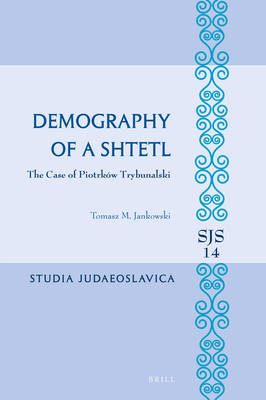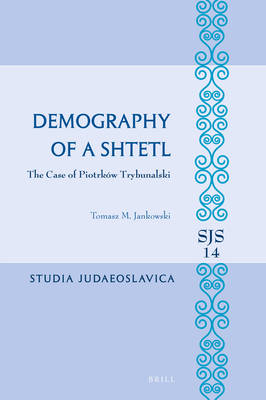
- Afhalen na 1 uur in een winkel met voorraad
- Gratis thuislevering in België vanaf € 30
- Ruim aanbod met 7 miljoen producten
- Afhalen na 1 uur in een winkel met voorraad
- Gratis thuislevering in België vanaf € 30
- Ruim aanbod met 7 miljoen producten
Zoeken
Omschrijving
This quantitative study of Piotrków Trybunalski traces the evolution of the population in the typical early modern semi-agrarian town in which the majority of activity was concentrated in the Jewish suburbs into a provincial capital in Congress Poland. Through the use of longitudinal aggregations and family reconstruction it explores fertility, mortality, and marriage patterns from the early nineteenth century, when civil records were introduced, until the Holocaust, revealing key differences as well as striking similarities between local Jews and non-Jews. The example of Piotrków set in a broader European context highlights variations in the pre-transitional demography of Ashkenazi Jewry and lack of universal model describing the "traditional" or "eastern European" Jewish family.
Specificaties
Betrokkenen
- Auteur(s):
- Uitgeverij:
Inhoud
- Aantal bladzijden:
- 240
- Taal:
- Engels
- Reeks:
- Reeksnummer:
- nr. 14
Eigenschappen
- Productcode (EAN):
- 9789004518407
- Verschijningsdatum:
- 1/09/2022
- Uitvoering:
- Hardcover
- Formaat:
- Genaaid
- Afmetingen:
- 154 mm x 238 mm
- Gewicht:
- 453 g

Alleen bij Standaard Boekhandel
+ 424 punten op je klantenkaart van Standaard Boekhandel
Beoordelingen
We publiceren alleen reviews die voldoen aan de voorwaarden voor reviews. Bekijk onze voorwaarden voor reviews.








